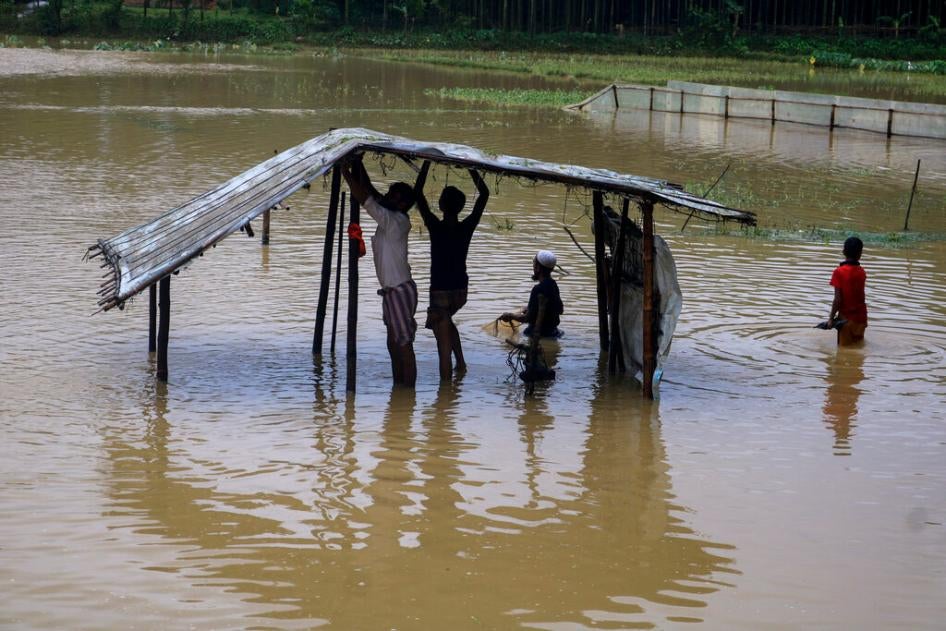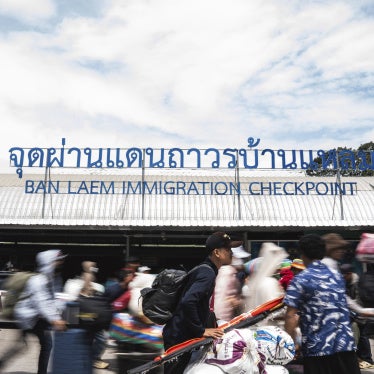Heavy rains over the past week have displaced more than 21,000 Rohingya refugees in Bangladesh. The resulting flooding and mudslides have destroyed about 6,418 shelters. With months of monsoon season still ahead, the refugees face heightened risks because they are being prevented from taking measures that could lessen the devastation from flooding.
In the refugee camps in Cox’s Bazar, where nearly one million Rohingya refugees who fled atrocities by the Myanmar military live, Bangladesh authorities have prohibited the construction of stronger shelters capable of withstanding not just the annual monsoon, but also frequent dry-season fires. This prohibition is a constant reminder to the Rohingya living in the world’s largest refugee camp that their stay in Bangladesh is temporary.
Making that political point has cost lives. Ever since the vast majority of refugees arrived in 2017, humanitarian agencies have warned that shelters made of bamboo and tarpaulin leave the inhabitants in danger. But the Bangladesh authorities have refused to let the agencies build any permanent structures that can be used as schools and double up as evacuation shelters in an emergency.
“We wish the authorities would allow us to build a little stronger shelters so that we do not have to face the same tragedy every year,” one refugee said, explaining that his tarpaulin roofing was leaking even before the monsoon started. Others described a shortage of drinking water because of inundated wells, lack of food, and clogged sewage facilities. Some refugees said they were moving in with relatives, risking spread of Covid-19.
An additional 5,000 Rohingya in the “no man’s land” at the Myanmar border are also experiencing floods. “Of over 500 shelters, only about 50 or 60 are still intact,” a 38-year-old Rohingya man said.
Humanitarian workers fear the spread of water borne diseases; there are already hundreds of Acute Watery Diarrhea (AWD) cases reported in the camps. Aid groups are experiencing a funding crisis, receiving only 30 percent of the US$943 million required for the 2021 joint response plan.
Bangladeshi host communities are also affected. At least 17 people including six Rohingya refugees have died in the landslides and floods.
Bangladesh authorities should act now to save lives, including by permitting permanent shelters and removing fencing that reduces mobility. International donors should immediately assist Bangladesh support both its nationals and the Rohingya who were forced to flee Myanmar’s crimes against humanity and acts of genocide.










